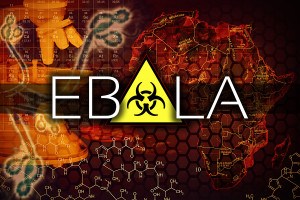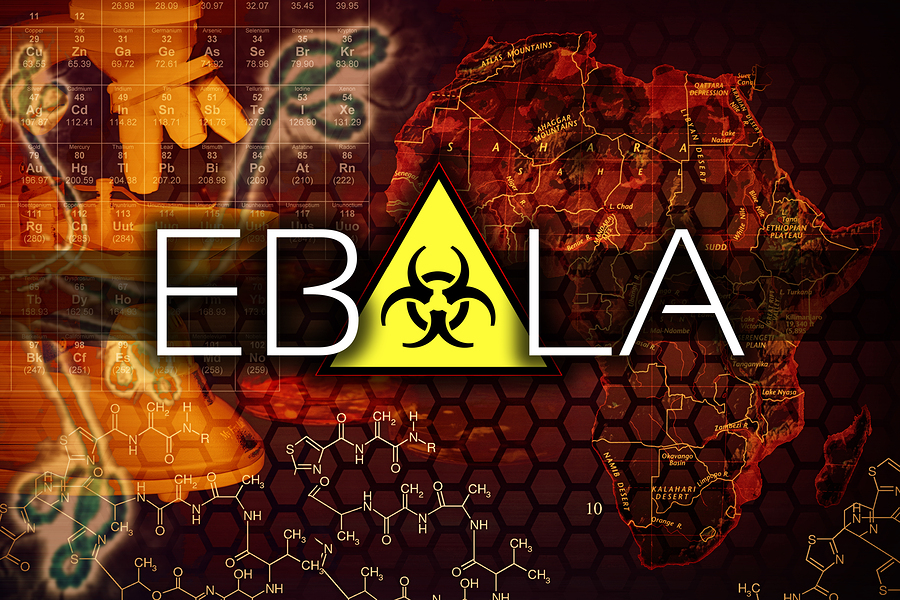As fears that an Ebola pandemic is on the horizon, many businesses are looking to insurers to allay their fears. While an outbreak could potentially impact several lines of insurance including workers’ compensation, business interruption, supply chain disruption, general liability and directors & officers, Randy Nornes, executive vice president at Aon Risk Solutions, said that since there have been only isolated cases in the U.S., it’s too early to tell how this will affect coverage.
An AIR press release stated, “Although it is improbable, widespread transmission in areas with a robust healthcare infrastructure can result in a spike in claims across many insurance segments. Claims may arise via healthcare coverage, life insurance payouts, workers’ compensation, travel insurance and contingent business interruption. Insurance firms at highest risk are smaller niche insurance firms whose insurance pool may have a disproportionate impact relative to their competition or the larger insurance market.”
The World Health Organization reports close to 9000 cases of Ebola with nearly 4500 deaths as of mid-October. Of those infected, only a handful has been reported outside Africa.
Nornes likened this situation to the 2009 H1N1, also known as the swine flu, scare. It was widespread with similar issues as with Ebola. In that instance, Nornes noted that it had affected 47 states and there were also shortages of the vaccine.
Nita Madhav, a senior scientist at AIR Worldwide, said that the lack of proper medical facilities and a general mistrust between local populations and the government are contributing to noncompliance in reporting which has contributed to the spread of the disease in Africa.
“The risk of sustained and widespread infection across multiple continents from this Ebola outbreak remains low. In countries with robust healthcare systems, any imported cases would most likely be contained with few or no transmissions to additional people—provided that cases are rapidly identified and appropriate infection control protocols are followed,” said Madhav.
Lockton Global issued a white paper in August, “Ebola Outbreak: Risk Management and Insurance Considerations”, exploring the effects of an Ebola outbreak as well as coverage implications.
According to the author, Logan Payne, senior account manager at Lockton, whether there is coverage will depend on the specific situation.
He noted key policy exclusions that could apply especially in the retail, service and food industry:
- Expected or Intended -Injuries that could have been expected are excluded. Carriers may argue that any prudent person would have known there was an increased exposure to Ebola.
- Pollution -Pollutants are defined as any solid, liquid, gaseous, or thermal irritant or contaminant, including waste. This exclusion is fairly broad, and in many cases depends upon case law in determining what is considered a pollutant.
- Bacteria – Carriers may argue that this exclusion applies. A virus is different in that it includes DNA or RNA in its genetic makeup.
D & O
The Lockton white paper also noted that shareholder suits could be expected where companies were inadequately prepared and the outbreak adversely affected business.
While D & O policies typically contain exclusions for claims relating to bodily injury, those exclusions would not apply to economic loss claims.
The Lockton author noted, “Shareholders may allege that directors and officers failed to perform the necessary contingency planning and to disclose the risks an Ebola outbreak could have on the company’s business and financial results.”
Liability
Persons contracting Ebola, or their families, could allege that appropriate precautions were not taken or that medical treatment was not sufficient. According to a number of industry sources,lawsuits targeting airlines, medical providers and employers could be anticipated.
Workers’ Comp
Because workers’ comp benefits include payments for medical care and lost income as a result of an illness acquired in the course of work and also pays death benefits if death occurs as a result of a work-related cause, workers’ comp is the line that could be the most directly affected if the virus spreads within the United States, according to a statement by the Insurance Information Institute.
“At the current time, the Centers for Disease Control and Prevention (CDC) believe the likelihood of the Ebola virus spreading widely in the United States to be extremely remote,” noted the I.I.I. press release on the subject.
According to an article by Christopher Boggs, vice president of education for Insurance Journal’s Academy of Insurance, it’s unlikely claims related to Ebola would be covered under workers’ compensation coverage.
Though healthcare workers who have greater exposed risk would likely be covered, the Lockton report noted. Additionally, employee liability claims could occur as a result of an infected worker’s spreading the disease to other family members.
The Lockton white paper stated, “However, increased exposure due to business-related travel or the endemic disease coverage under the foreign voluntary extension of a WC policy may ultimately trigger coverage for other groups of workers as well. Potential policy exclusions that are expected to be closely examined by carriers include:
- Your serious and willful misconduct.
- Your failure to comply with health and safety laws or regulations.”
Business Interruption
According to AIR, “Business interruption is most likely to occur in mining, agricultural, energy, chocolate and travel sectors that have a strong presence in the affected West African countries. However, it is unclear what, if any, of these losses are covered by existing insurance policies, especially since business interruption policies typically require physical damage to a location.”
Nornes agreed, indicating that the risks are industry specific. The top priority is duty of care as well as crises communication and contingency planning.
Just a few weeks ago, Willis launched an Ebola virus disease response center hub on its website to provide resources for companies looking to prepare workplaces for the threat.
“The threat of the outbreak underscores the importance for firms to establish robust emergency preparedness and business continuity plans,” said Marc Hindman, Willis Risk Control and Claim Advocacy Practice leader.
The Aon Risk Solutions EVP doesn’t anticipate supply chain disruption issues at this time since the affected area in Africa has limited trade.
Costs to treat Ebola are estimated to be close to $500,000, AIR reported.
Besides insurance implications, insurers could see profit losses, according to AIR.
“Another potential source of loss for insurance companies may come from the asset side of the balance sheet. Insurance firms holding assets of companies with strong ties to West Africa may be adversely affected. Last week, the World Bank provided stress testing economic loss scenarios related to the Ebola outbreak. Their severe scenario resulted in over $30 billion in lost economic output from 2014–2015. They also noted that this loss is more driven out of “fear of contagion” than a direct result of the outbreak.”
Was this article valuable?
Here are more articles you may enjoy.


 These Five Technologies Increase The Risk of Cyber Claims
These Five Technologies Increase The Risk of Cyber Claims  Uber Jury Awards $8.5 Million Damages in Sexual Assault Case
Uber Jury Awards $8.5 Million Damages in Sexual Assault Case  Tesla Sued Over Crash That Trapped, Killed Massachusetts Driver
Tesla Sued Over Crash That Trapped, Killed Massachusetts Driver  Charges Dropped Against ‘Poster Boy’ Contractor Accused of Insurance Fraud
Charges Dropped Against ‘Poster Boy’ Contractor Accused of Insurance Fraud 